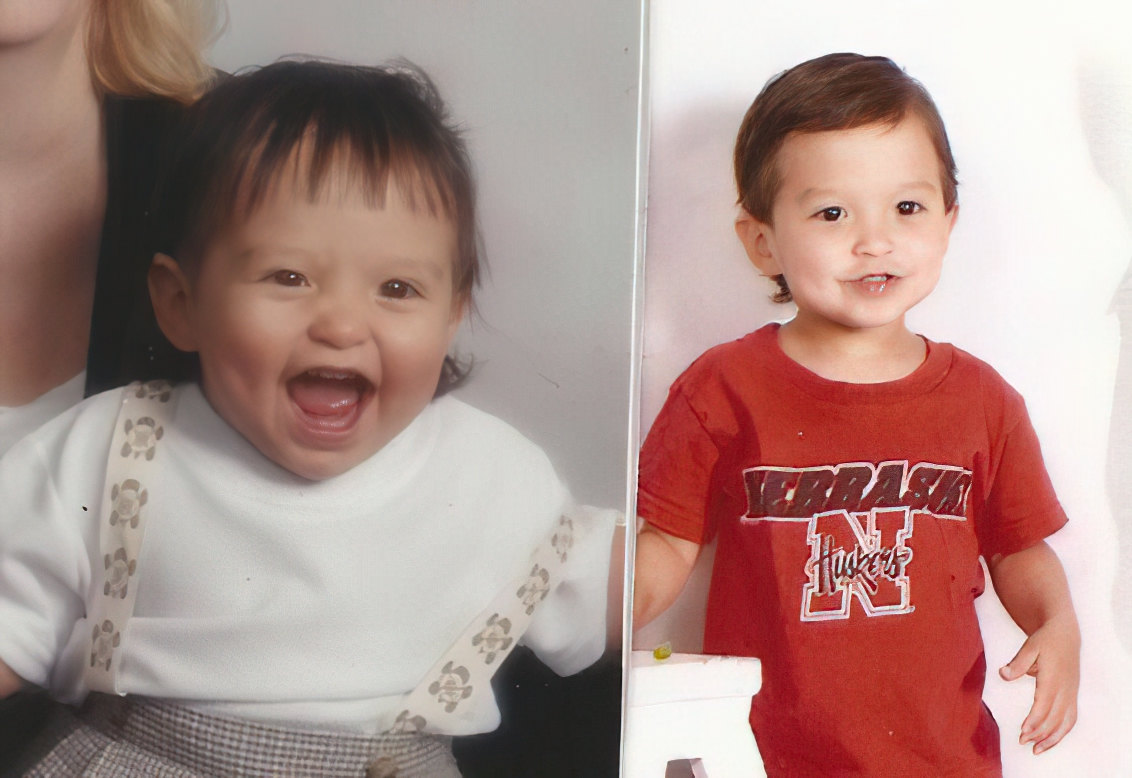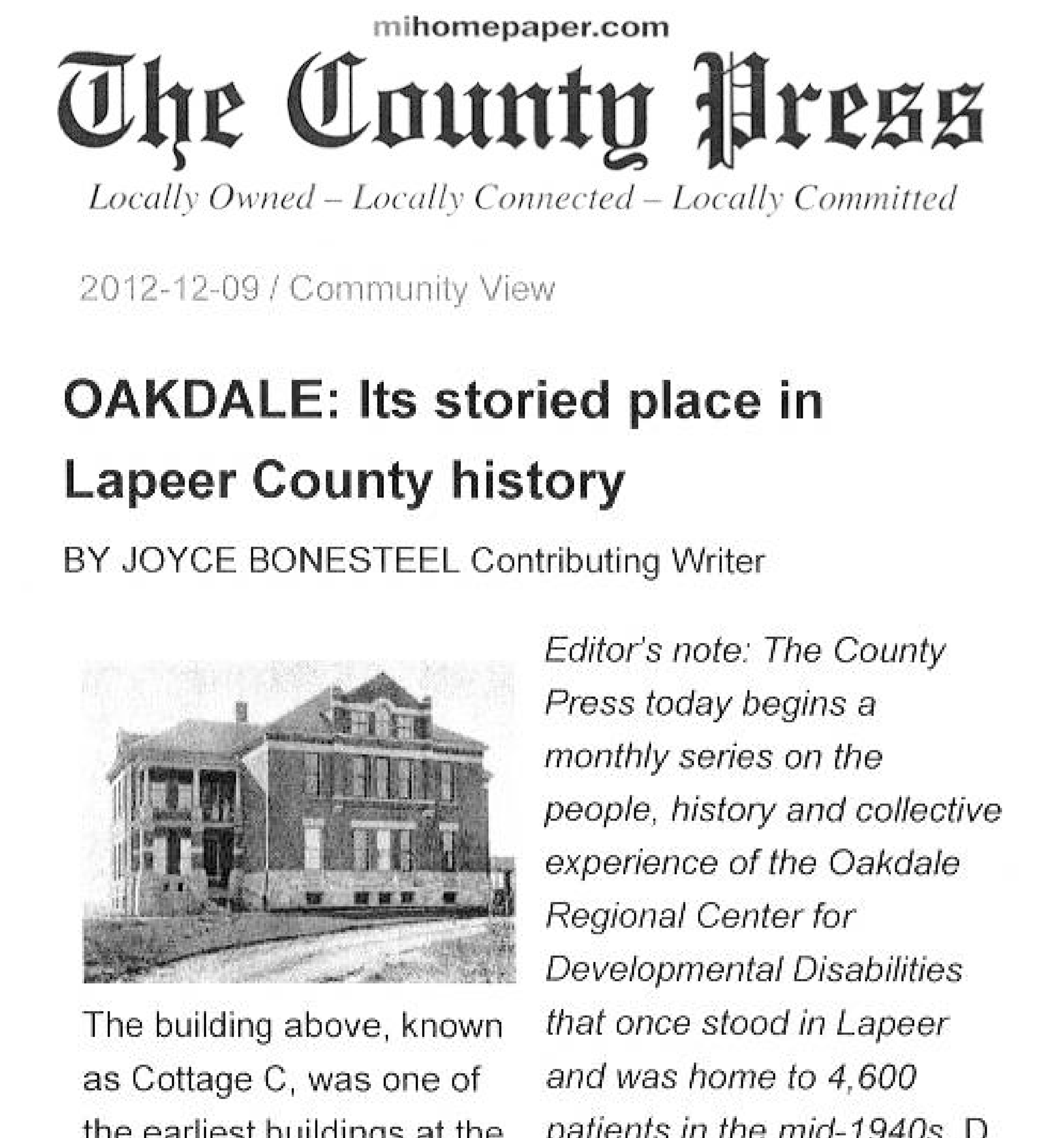I looked over at my young son as we drove to the doctor’s office for his appointment. Weston was comfortably strapped in his car seat, looking out the window toward the morning sunlight that was starting to warm the clear winter day.
It was Groundhog’s Day in 2001, the second day of February. Groundhog folklore would insist that winter was going to last for another six weeks, since the groundhog would certainly see his shadow on such a sunny day. But the splendid day had me convinced that spring time was going to come early.
“Weston, my birthday boy,” I said loudly. “Daddy sure loves you!” Weston’s cocoa eyes briefly glanced over my way and then turned to look out the window again. His profile was that of an angel. He was three years old and curious, but Weston had not yet reached the milestones of average children his age.

While most toddlers were capable of speech at this stage, Weston struggled to vocalize simple words, even though he’d been receiving daily speech therapy for the past year. He was labeled “speech delayed” a year earlier by a social worker, so we began speech therapy in earnest, hoping to aid his developing mind in every possible way. Yet, Weston had made little progress during his year of twice daily therapy sessions and our consistent attempts to draw him into communication.
There was no medical explanation given to us by doctors as to the cause of this delay. The comforting words that I’d heard from friends would often replay in my mind, “Boys always speak later than girls. There’s nothing wrong. Just give him a little more time and he’ll be talking up a storm.”
I had also thought about genius Albert Einstein’s inability to speak until the age of five. Weston could have Einstein Syndrome, a label given to extremely intelligent people who have a delay in speech. A powerful mind could be developing behind Weston’s sweet brown eyes.
The annual exam was being carried out by Dr. Cunningham, a child psychologist with thirty years of experience and a lofty reputation. I was anticipating a brief rundown on Weston’s progress, and suggestions for more therapy. My wife Joyce and I were fully aware of the fact that our son was still lagging behind normal standards, so we believed that we could predict the outcome of the exam.
I was confident that all was relatively well, so I took Weston to the appointment alone, while Joyce stayed behind to finish the birthday preparations for Weston’s big day. Joyce loved to go all out for everyone’s birthday party.
I pulled into the parking lot of the expansive office and cut the engine, surveying the beautifully landscaped grounds. I thought of the day ahead. I was eager to get back home to begin our party, after which I planned to take Weston up to our rustic cabin for a father and son sleep over – boy’s night out!
Weston was moaning and screaming while we sat in the waiting room. He began to hit his head with his closed fist, screaming louder. I spoke gently to him and attempted to soothe him.
Soon, Dr. Cunningham appeared, stopping just short of the entrance into the room. Weston became quiet and stared at her for a moment. Dr. Cunningham was an older woman in her early seventies. She wore her professional demeanor in a stiff manner, similar to her molded beehive hairdo.
“Good morning, Mr. Adams. Please follow me,” she said. We were escorted to an exam room where I gathered Weston onto my lap.
“Mr. Adams, I will begin this assessment using a series of standardized Bailey Scales and Vineyard Development tests. This will allow me to further analyze your son’s advancements in the last year and give us a look at his mental capabilities.” She had the manner of a typical psychologist; an air of polite detachment was foremost in her approach. She proceeded to bring out a wooden chest that held a variety of colorful blocks, beads, and puzzles.
“Mr. Adams, you can take a seat in the waiting room. I will let you know when we’re finished with the testing,” She said, turning away from me.
Time went by very slowly as I waited. I imagined myself leaving the office with positive news to bring home to my wife. I knew Joyce was probably knee deep in balloons, streamers, and bows while still tending to Weston’s little sister, Emily.
We had adopted both of our children from the same young couple, so Weston and Emily were full-blooded siblings. Joyce and I had tried unsuccessfully to have biological children for over three years, including two attempts with In Vitro Fertilization. We wanted children very much, as we were both over forty years old, so we were quite ready for the commitment of raising a family.
We finally decided to adopt a child, lining up a private attorney to handle the process. We created a glowing package to promote ourselves to biological mothers who would be choosing a family for their baby.
Joyce and I had laughed together when she cut out a cute baby photo from a magazine and placed it on the living room table. We were invigorated by our mutual anticipation. We’d already picked out the names Weston and Emily, so all we needed was a baby to go with one of them.
Only three months later, we received the news that a baby boy was soon to be delivered by a mother who had chosen us to be his parents. We were so thrilled! And before long, we were in the delivery room with this young mother in labor, whom we’d grown familiar with during our frequent communication leading up to the birth of our son.
Weston was born healthy and whole. We were quite privileged to be in the delivery room to behold the miracle of new life, our son’s perfect entrance into the world. I was soon supporting the brand new boy in my arms, feeling profoundly overjoyed. His eyes gazed into mine. He blinked and moved his little hand in the air. That was the moment when I became a father.
I was in awe of his fragility, anxious to keep his tiny body safe in my arms. He had a mop of soft brown hair and a heart-shaped face. His enormous doe eyes held sheer innocence and the mystery of life. My eyes welled up with warm tears of happiness. My son had arrived, and he was coming home with us to stay.
When the nurse came to take him away to be given a vaccination, we stopped her. “Oh no, thank you,” Joyce insisted. “He won’t be getting any vaccinations right now.”
Joyce had read about an alarming trend that was occurring more often in children. It was called autism, and it was already being linked to vaccines. (1) We elected to wait until Weston was a little older to begin the immunization schedule of more than twenty doses of vaccines in the first year of life, hoping to give his young body more time to develop and adapt to the environment. (2)
Weston was quite healthy during his first year; he never even suffered from a cold. We felt lucky to have such a strong child. His doctor continued to ask us when we would begin the series of shots. We were reassured by the doctor that it was what was best for our child. Because Weston was so healthy, we agreed that he was strong enough to proceed.
He was given his first series of vaccinations when he was eleven months old. The medical staff helped hold him down while he was injected with multiple vaccines. We were scheduled to come back two months later for him to receive more injections. He screamed all the way home that day and later on into the night.
He also vomited that evening more times than we could count. For weeks afterward he would end up vomiting six to twelve times a night, writhing and crying in pain. This turned into months of frequent vomiting. His body was trying to get rid of something, and it wasn’t giving up. He experienced harsh symptoms for over a year.
Weston would spike high fevers, lying ravaged by fatigue, drenched in sweat after crying and screaming for hours. He was frequently listless, with no energy or appetite, until later growing frantic in his discomfort again. He would thrash around, grabbing his clothing, pulling at his hair, screaming and crying in a high-pitched wail.
He was often exhausted, worn out, attacked by something that he couldn’t even speak to us about. After hours and hours of distress and pain, it became incredibly stressful to watch him suffer, while we were unable to help him.
Weston began making repetitious movements and odd sounds. It was alarming to see such a profound change in our child. This change appeared directly related to receiving the vaccinations, but our doctor assured us each time we returned that it was not. He said that the cause of Weston’s illness must be due to different viruses that he’d caught, being so young and vulnerable, or environmental issues, or perhaps food allergies.
We were told that no long-term ill effects had been proven to be caused by the vaccinations, that they could only cause a short-term reaction. I didn’t rest so easily in this supposed fact. I knew that historically there were numerous other vaccines that had proven to be dangerous and harmful, and they were discontinued due to this fact. (3)
The doctor told us to give him Tylenol for pain, which didn’t seem to help him. We later found out that acetaminophen exacerbates the intestinal damage that certain ingredients in vaccinations can cause, especially in children. (4) No wonder he was vomiting nearly every night; we’d been told to give him something that could increase the attack on the lining of his entire intestinal tract.
Joyce was the strong one who stayed up all through the long nights, trying to soothe our boy, cleaning up after him. He was over two years-old before most of the intense flu-like symptoms abated, but he still experienced lingering ill effects.
We thought that his speech delay could be caused in part by the severity and length of his weakened state. We were finally hopeful that the worst was behind us, that Weston was on his way to growing into a fine young man with a bright future.
We’d known his biological parents, who were healthy and functional, so we’d ruled out a link to anything unusual in his immediate family history. I never once regretted adopting him; I just wanted him to feel better, and I wanted to be able to restore his health. He was my only son, blood-related or not.
I’d also been raised by a non-biological father. Just as my father Harry had raised an “adopted” son, I was raising an adopted son. Though, I hadn’t known that I was adopted until I was 28 years old. It took me years to digest the complete web of my beginnings, and I’m still unraveling some of the hidden threads today.
My mother and father tried to have children, but this goal was doomed from the start, as my father had a history that he’d hidden for years from my mother out of shame. After four years of trying, they could only watch their friends continue to bring home babies from the hospital.
My father finally told my mother that he was unable to have children. He confessed the truth of his sterility: that he had been locked up in an institution and placed under a knife to gain his freedom.
As a troubled youth with a viciously abusive stepfather, Harry had a few run-ins with the law for petty thievery. His family was so poor that he began to steal out of desperation. He was caught several times, and subsequently forced into the Beatrice State Home for Feeble-minded Youth in Nebraska, where he would end up being misdiagnosed as severely mentally retarded.
He withdrew into himself while he was confined, suffering the hardship and horrors of imprisonment for more than four years. No one will ever know the full extent of the loneliness and fear that he had experienced while trapped inside the walls of that institution.
The confinement took place during a formative time in his life, when a young adult developed his identity and learned how to function in the world. Harry could only learn from the other inmates and the staff.
His release from captivity was contingent upon him relenting to a sterilization surgery so that he could never reproduce children. He wanted to leave that dreadful prison, so he agreed and signed his name on the consent form.
The U.S. eugenics program had created a permanent victim in my father, and this legacy would touch many more lives to come. Harry was not able to have his own children due to the U.S. government and their policies regarding “unfit” people and their lack of human rights. (5)
Even after his confession, my parents remained steadfastly together, still hoping to somehow add a child to their family. My mother had learned about In Vitro Fertilization (IVF) from a magazine article, and when she’d asked her doctor about it, he said that he knew how to perform the procedure.
After agreeing with the doctor to use sperm provided by an anonymous donor, my mother had the IVF procedure. My father was aware of the choice to use a donor, and he went along with it to please my mother and to create a family. The procedure was successful, and I was born nine months later to ecstatic parents.
Harry did not become the man that he was supposed to become due to his confinement, and it was apparent in his humble ways. He lived with the shame of his institution stay. And yet, he was always grateful for everything. He was the hardest working person I’ve ever met, physically laboring 60-70 hours every week to feed his family. He never complained.
My father never knew that I’d learned the truth about my donor father from my mother when I was twenty-eight, that he was not my “real” father. He’d always doted on me, just like a real son. No one would have known that we were not blood-related.
He worked so hard to maintain our meager lifestyle and support the structure of our family, yet he was never harsh or gruff. He was always caring and considerate to me and my sisters (they adopted two foreign born children years later).
I hoped to be as devoted a parent to my children as my father had been to me. I felt that I loved Weston and Emily even more than biological children, because we had strived for so long to have a family, and our dream had finally come true. They were our lifelong prize. I would do anything for my children.
Dr. Cunningham emerged from the room forty-five minutes later. Weston ran to me and scrambled onto my lap, wrapping his arms around my neck.
“Please come into my office, Mr. Adams.” I carried Weston as we followed Dr. Cunningham’s rigid back down the hallway.
In the office, I sat across the wide oak desk from her. She cleared her throat.
“I’m afraid that I have some bad news,” she began. She shuffled papers and appeared somewhat uncomfortable. I held Weston tightly for a moment, and he groaned in frustration. I felt my heart begin to beat faster as I worked to soothe Weston into sitting for another minute.
“I have totaled the scores from the various tests.” She paused, looking at me with no emotion. “In evaluating your son’s progress over the last year, he appears to be significantly delayed.” She gazed down at the paperwork in her hands, avoiding my eyes.
“What do you mean?” I asked. “What are you saying?”
The term “significantly delayed” was already burning a hot meaning into my psyche. I felt the room suddenly become very small. The moment felt surreal; I wanted to back up and start the day over, but time continued to move me forward.
“What I mean, Mr. Adams, is that your son Weston is significantly delayed and functioning in the moderate to severe level of mental retardation. I’m truly sorry,” she said, looking away from us. “You should just take him home and make him comfortable. He’s never going to be anything.”
I froze. It seemed that time had finally stopped along with me. My world came crashing to a halt as the reality of her words penetrated my mind: severe mental retardation. Not my boy, no, he was just beginning his life! I wanted to deny the raw impact of her statement, but I couldn’t find solid ground as my mind searched for a way out.
The images that I’d held of future moments in Weston’s life were dissolving as I sat there: his first day of Kindergarten, teaching him to ride a bike, fly a summer kite, news of his first girlfriend, high school sports achievements, my adoring grandchildren…
“Exactly what do you mean?” I heard myself ask.
“As I said…” she began methodically.
“Well, say it again!” I snapped, knowing it wasn’t her fault, but I was having trouble controlling my emotions and my thoughts. How could she be so calm? Because it was my child, not hers, my mind informed me.
“Your son has an IQ of 47. Unfortunately, he will never be like other children. He will grow, but at a much slower pace than others his age. As he gets older, his shortcomings will become more and more evident, and more pronounced,” she stated matter-of-factly.
I felt as if I were falling off a steep cliff, having just been pushed over the edge by the doctor’s easily spoken words. I held onto Weston for balance in the numb silence that followed her declaration. He slipped away from my firm hug and set out to amble around the room. I bent over in the chair, putting my head between my legs. Oh God, why this?
The words “severely retarded” and “never going to be anything” repeated themselves in my mind. How could God be so cruel? Not my boy, please! I realized that the odds that I’d thought were in my favor from having a life fraught with challenges and turmoil were not in my favor after all.
A new life had begun for me at that moment; the old life was smashed apart in a single moment. I’d waited all of my life to have a son, and this woman had just told me that he was nothing, to just take him home.
Thoughts of my adoptive father rushed into my mind. He had been misdiagnosed as severely mentally retarded. Now, my son was facing the same label. How could history repeat itself so succinctly when we weren’t even blood related?
What would be Weston’s fate when he became an adult? A chill crept over my being. When Joyce and I were no longer alive to care for him, how would he survive? Would he have to be institutionalized one day, just like my father?
I couldn’t even process all of the frightening potentials for my child. My mind tried to cling to any shred of hope. My father had been misdiagnosed, so perhaps Weston was not correctly diagnosed.
I grabbed the paperwork and left the office with Weston in tow. Sitting in my car, I decided to call my wife and have her meet me at the office. I wasn’t fit to drive yet. I didn’t tell Joyce the news on the phone, choosing instead to wait until we were together to deliver the information.
When Joyce arrived, I had to cover my tear-stained eyes with sunglasses as we went back inside to confront the doctor. I wasn’t handling the situation so well. The doctor finally saw us, and we listened to her give the same diagnosis.
“He’s not severely mentally retarded,” Joyce interrupted. “He probably has autism!”
The doctor stared at Joyce for a moment, taken aback. “Well, I don’t know much about autism,” she replied.
Joyce was very angry, and I was still shocked and devastated. We left the building and convened in the parking lot…..

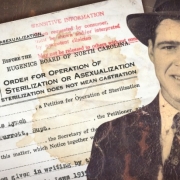
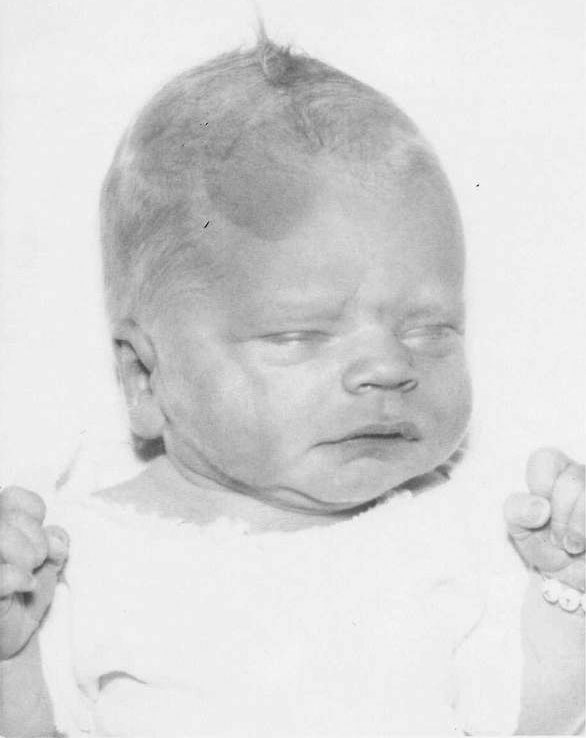 Greg Wyatt was conceived 51 years ago on a medical-exam table in Lincoln, Neb. Wyatt’s dad was sterile, so a family doctor artificially inseminated Wyatt’s mom with sperm donated by an anonymous University of Nebraska student.
Greg Wyatt was conceived 51 years ago on a medical-exam table in Lincoln, Neb. Wyatt’s dad was sterile, so a family doctor artificially inseminated Wyatt’s mom with sperm donated by an anonymous University of Nebraska student.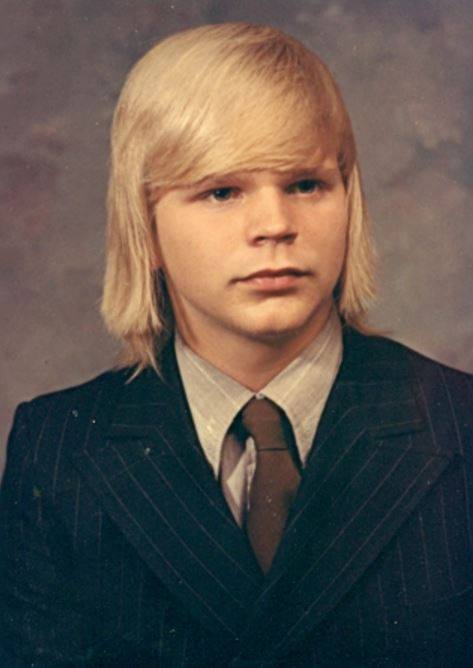 “Whenever I’d see a family picture, I’d say, ‘Boy, I just really don’t fit in here,’ ” he told me at the time.
“Whenever I’d see a family picture, I’d say, ‘Boy, I just really don’t fit in here,’ ” he told me at the time.
